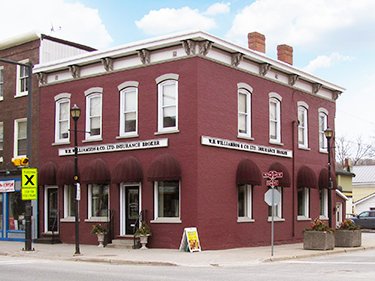Barbecue Season Is In Full Swing: Don’t Go Up In Flames
The joys of outdoor cooking also bring fire and associated risks. Here are some safety reminders for gas and propane barbecues to protect you and your property from harm or damage.
• Never operate a barbecue in an enclosed space, close to a structure, or near combustibles. Have a one metre radius around it free of obstructions.
• Keep your barbecue in tip top shape. Check for hose breakage, valve leaks, and other parts before securing the tank well and turning on the gas.
• When in use, never leave the grill unattended, and when finished turn the tank off before the burners so the remaining gas in the lines can burn off. This can help prevent a flash the next time the BBQ is in use.
• Make sure your fire extinguisher is easily accessible and in good working order.
Additional Tips
• Propane companies use an additive to create an unpleasant odour like rotten eggs to make a propane leak easier to detect, so you can shut off supply immediately, stop using the grill, and clear the area.
• Although the risk of carbon monoxide is low when using a BBQ outdoors, it is not entirely eliminated. Learn to recognize the signs of CO2 poisoning and take appropriate action.
• Store propane tanks in an upright position, in a spot where they are unlikely to be knocked or bumped to prevent any safety risk.
Focus on Road Safety as Seasons Change
The shift in seasons brings shorter daylight hours and dropping temperatures along with seasonal driving hazards such as slippery road surfaces and sun glare which reduces visibility during commutes. Black ice and drifting snow are additional hazards encountered with upcoming winter driving conditions. A recent survey found that 50% of cyclists, 44% of pedestrians, and 44% of drivers feel less safe with the approach of winter. Here is some advice that can lead to a safer road experience for all of us:
Leave more time for you to get from point A to point B.
Install your winter tires as soon as temperatures consistently fall below seven degrees Celsius. Remember, a discount is applied to your auto policy if you use winter tires.
Winterize your vehicle by packing a winter survival kit, installing winter wipers with washer fluid rated for cooler temperatures, and maintaining proper tire pressure.
Start slowing down sooner as you reach a light or cross walk and maintain a safe distance between you and the car ahead (greater than the two second rule.)
Depth perception and visibility can be compromised when driving in the dark. Reduce your usual travel speed to compensate for this.




 W.H. Williamson & Co. Limited
W.H. Williamson & Co. Limited




